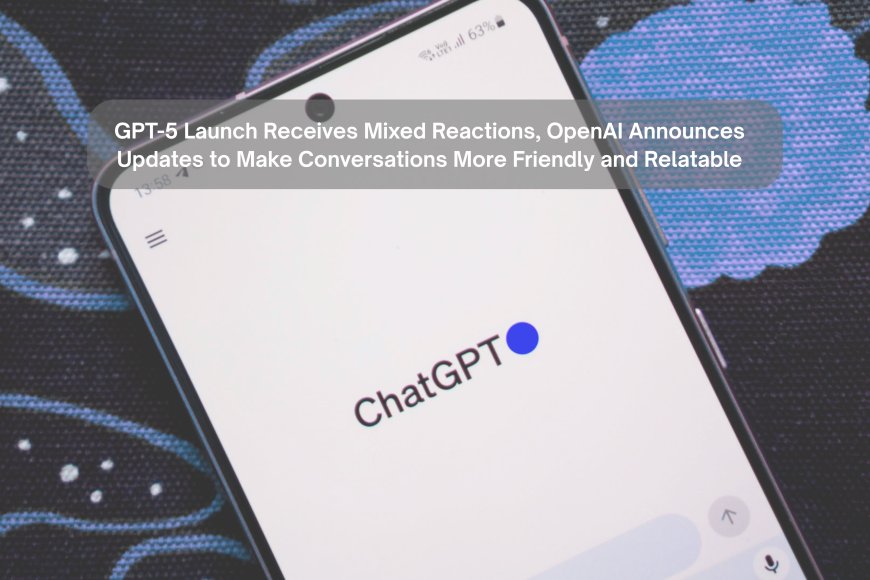GPT-5 Launch Receives Mixed Reactions, OpenAI Announces Updates to Make Conversations More Friendly and Relatable
OpenAI’s GPT-5 launch faced criticism for lacking warmth compared to GPT-4o. Responding to feedback, OpenAI is updating GPT-5 to feel friendlier, while keeping its advanced skills, new modes, and personality options.

OpenAI recently introduced its advanced model, GPT-5. The launch sparked a lot of excitement because people expected it to be smarter and more useful than previous versions. However, the deployment did not go as smoothly as expected. Many users reported that GPT-5 felt less warm and natural in conversation than GPT-4o, an older model known for its friendliness.
One of the main feedback raised by users was that, while GPT-5 was technically stronger, it lacked the emotional connection that GPT-4o provided. Many users used GPT-4o for more than simply work; it also provided companionship. When OpenAI discontinued GPT-4o, some users felt they had lost that connection.
Following this feedback, OpenAI intends to make changes. In a recent post on X, the company announced that it is revamping GPT-5 to make it "warmer and friendlier." The enhancements include small but genuine. Importantly, OpenAI confirmed that GPT-5 will not become excessively flattering, as was usual with GPT-4o.
Despite these flaws, GPT-5 is an extremely powerful model. It includes advanced abilities in coding, math, writing, and science. It also has selectable personality settings, including Cynic, Robot, Listener, and Nerd. However, many people were dissatisfied because none of these felt as relatable as GPT-4o's approach.
OpenAI CEO Sam Altman addressed the claims directly. He explained that GPT-5 now allows users to select from three alternative thinking modes: "Auto," "Fast," and "Thinking."This allows users additional control based on their needs. He also discussed use limitations, stating that GPT-5 "Thinking" can handle up to 3,000 messages per week and has a huge 196k token context window.
Interestingly, Altman agreed that GPT-4o's excessive flattery was both a flaw and a feature. While OpenAI wanted to improve it, many users valued the companionship it provided.
This entire issue demonstrates how different people's experiences with AI have evolved. Unlike prior technologies, AI models such as GPT-4o and GPT-5 are more than simply tools; they are companions to many. OpenAI today faces the problem of making AI smarter while remaining friendly, approachable, and human-like.
This article is based on information from India Today







